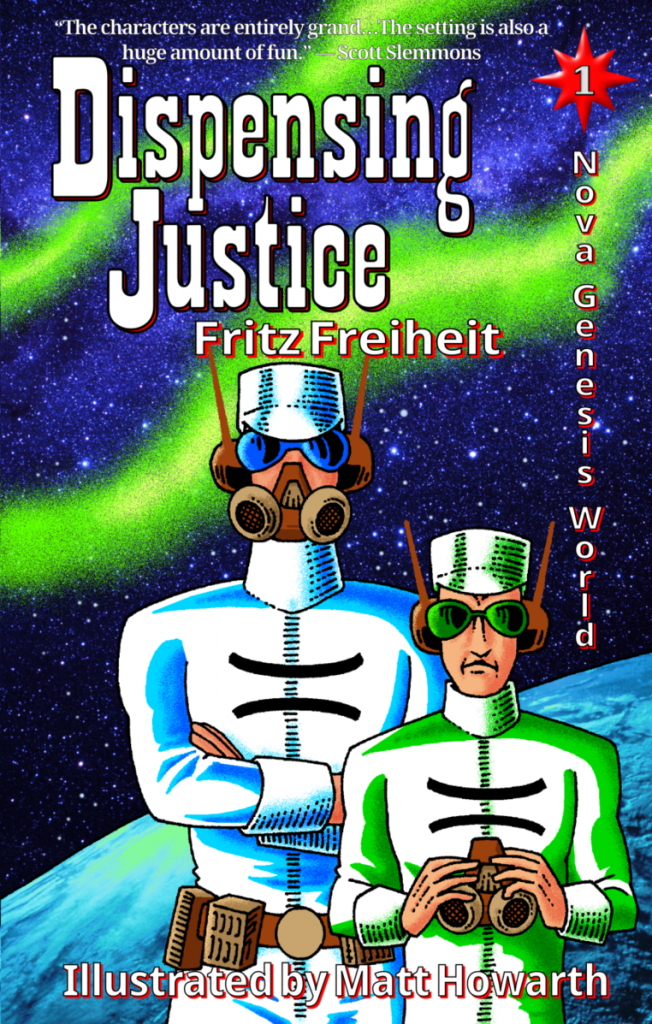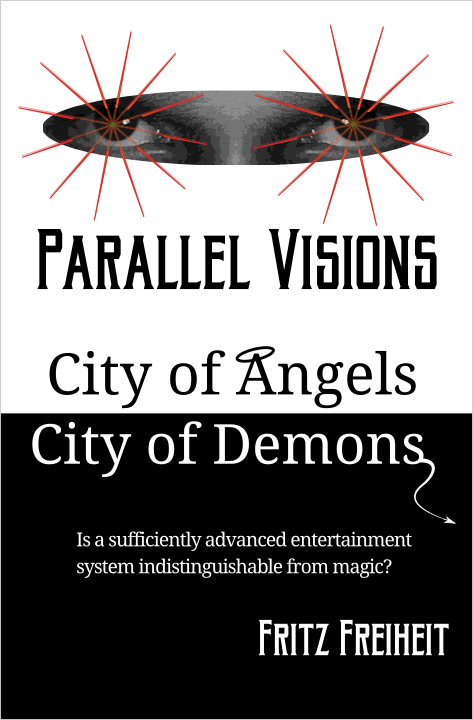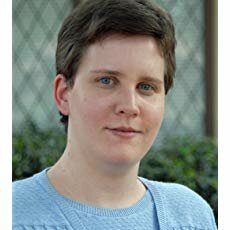Tamara Wilhite: Can you share your background in AI?
Fritz Freiheit: As a kid, I wanted to be an astronaut. It was the sixties, after all. By the time I went to college in the seventies, a bit more realism had impinged itself on my life, and I eventually settled on mechanical engineering as my major. While taking computer programming courses that were part of the engineering curriculum, I discovered that I enjoyed and was skilled in programming. Before I graduated, I decided I wanted to experience life in Japan. I wound up getting a job with Sumitomo Electric, part of the Big Four corporate conglomerates in Japan. I found myself in Osaka going through the professional training program (as the only gaijin/foreigner). Since they didn’t know what to do with a gaijin, I was given the unusual privilege of choosing what I wanted to do, and I choose to be a software programmer. They handed me some books and told me to write a 3D graphics driver – and I did.
After a year in Japan, I was offered a position in L.A. to write a Japanese version of a rule-driven database interface, which threw me into AI software development. Once again, I received several books, and I wrote a Japanese language parser.
I learned that there is a perspective that comes from thinking about thinking when developing software. Writing expert systems parallels novel writing – getting in the head of a character and telling a story from their perspective. I put myself in the mind of users, understand their goals, and write software to accomplish those goals.
Tamara Wilhite: Your bio says you work in agent-oriented distributed systems and computational linguistics. Can you explain what those are?
Fritz Freiheit: Agents, or more accurately, software agents, are bits of code that perform a set of functions independently, but on behalf of a user either directly or at the behest of another software program. Computer viruses are akin to agents. The critical point is that an agent does what it does independently. Like their namesake in the physical world, agents make decisions on behalf of another. Adding the ability to send an agent across a network to some other computer making it a distributed system.
The general goal of computational linguistics (CL) is to create models of language, gain understanding, and create algorithms that can transform natural language into data structures and attach meaning to them. One of my hobbies is the computational analysis of a narrative text. I run a suite of analysis programs that I’ve developed against my writing to find flaws that I can fix before I hand it over for copyediting. This is only moderately effective. I have also analyzed other authors writing to put hard numbers around things like the frequency of adverbs, the length distribution of paragraphs, word frequency, the use of dialogue tags, phrase frequency, clichés, and word clustering.
Tamara Wilhite: How does your IT background influence your writing?
Fritz Freiheit: I think my IT background is only one of many factors that contribute to my storytelling. The kind of SF I find myself writing uses a “sufficiently-advanced-technology” dodge or is set in a 20th century-esque alternate history that has variations and advancements on commonly known technology. Engineering elements in my stories are in the background, as they are the scaffolding used to build the story, but the story can stand on its own without it.
My background in mechanical engineering often has more direct manifestations in my stories. For instance, I calculate how long it takes for a character to fall or how much a disk of ice several miles in diameter and five hundred feet thick weighs. I also spend time on speculative engineering, such as explaining how the construction of mile-high buildings on stilt-like, active structures (also known as “space fountains”) might be built. (An active structure is a structure that rather than transferring compressive load statically (through concrete or steel), it does so through the kinetic energy of moving objects. Think of a ball kept aloft in the stream of water, thus the name “space fountain.”)
Tamara Wilhite: What is “Parallel Visions” about?
Fritz Freiheit: I have always been a sucker for amnesiac hero reading list, such as Corwin of Amber and Jason Bourne. I had this idea about a man, Vance Coreman, waking up in a tub of ice water that sits in a shabby bathroom, a scarlet-skinned woman standing over him insisting that he has an appointment that he dare not miss. Vance has PTSD flashbacks of fighting for his life against a hound of flame, a seductive angel, and a demanding djinn.
I don’t write pure fantasy, so the Parallel Visions world is science fiction underneath urban fantasy trappings, which leads more generally to the Parallel Vision world. While writing the City of Angels City of Demons storyline, I was torn between letting the reader discover the world of Parallel Visions through the story and giving the backdrop. In the end, I let the story unfold through Vance’s perceptions and delayed revelations of the world until late in the book.
Along with flashbacks, Vance has visions of another world that lies just beneath the surface of his reality. A world that appears on the surface to a magical version of post-war 1940s Los Angeles that is simultaneously a City of Angels and a City of Demons. Underneath it all, Vance sees another world entirely. One that is somehow sterile, constrained, and filled with devices that he doesn’t understand. To explain any further about the Parallel Visions world would be a massive spoiler for this as well as other stories in the series.
Amazon links: ebook or trade paperback

Tamara Wilhite: And what is your novel “Dispensing Justice” about?
Fritz Freiheit: Dispensing Justice is a coming-of-age story of how Michael, on witnessing the death of his father at the hands of the supervillain cyborgs of the Demolition Squad, decides to take up his father’s superhero identity and sets out to bring them to justice. Along the way, Michael adapts and rebuilds his father’s supersuit and learns how to fight. The story takes place in an alternate version of the 1980s, where an earlier supernova and the intervention of benevolent aliens cause some humans to develop superpowers and to accelerate technological advancement.
Amazon links: ebook or trade paperback
Tamara Wilhite: What is the origin of that book’s subtitle “The Nova Genesis World”?
Fritz Freiheit: The Nova Genesis is essentially the scientific explanation for a world where superpowers are possible. I couldn’t really embrace writing a superhero world without a scientific foundation. I created an alternate history to post-WWII, where the toxic radiation from a supernova is a catalyst for alien intervention on Earth. Galactic nanotech used to save civilization has the unexpected result of superpowers for some humans. “Genesis” is the “mass empowering” event that brings supers, both hero and villain into existence. Here’s a glimpse into the tropes and cliches you can find in my Nova Genesis novels.
Tamara Wilhite: The second “Nova Genesis World” novel came out in 2013. Is there going to be a sequel?
Fritz Freiheit:Yes, I have a first draft of Have Psionics, Will Travel, which is the third book in the Nova Genesis series. I plan to publish it late this year or early next year. I have six novels planned for the Nova Genesis series. The first five books in the series are (or will be) written from the viewpoint of different characters, and the sixth book will be written in third-person with all the previous main characters back as a team.
Tamara Wilhite: And what else are you working on?
Fritz Freiheit: I have several more novels in different stages of development.
I recently polished my novel Doc Morrow: The Neopolymath, based on beta reader feedback. I plan on getting it to my copyeditor by Spring. Doc Morrow is another alternate history set in the year 2000, one where I re-imagine a shiny-spacesuited, bubble-helmeted, atomic-powered world popular in the post-WW2 era of the fifties. Doc Morrow and his six companions compose the “Doc Squad.” The Doc Squad pursues clues to reveal the identity and sinister goals of the mastermind behind Doc’s father’s murder. The clues take them across the Atlantic to a subterranean city, to the dam spanning the strait of Gibraltar, into orbit and beyond to the space colony New California, and finally to the Morrow’s family asteroid.
I’m currently in the early stages of writing a sequel to the first Parallel Visions novel, entitled Parallel Visions: Radium Rebels of Mars. The story is set in a sword-and-planet themed realm that draws inspiration from Edgar Rice Burroughs Barsoomian stories. The only two reoccurring characters are Vance Coreman and his AI assistant. My intent is for each of the Parallel Visions stories to have different settings with different “rules.” Each one will provide new challenges for Vance as he learns to adapt and overcome.
Tamara Wilhite: Is there anything you’d like to add?
Fritz Freiheit: Indeed I do. I want to mention a handful of the books and short stories that I’ve recently read and enjoyed.
- Agency (sequel to The Peripheral) by William Gibson (merging time travel, a post-scarcity society, and near-past thriller with plenty of fun tech and gadgets)
- “Junkyard Cats” (post-apocalyptic cyberpunky nanotech fun)
- “The October Man” (7.5 in the Peter Grant series) by Ben Aaronovich (my favorite urban fantasy and good police procedural to boot)
- Who Censored Roger Rabbit by Gary Wolfe (fun noir mystery set in a cool alternate history with toons, not very similar to the movie)
- Gideon the Ninth by Tamsyn Muir (a cool noir techno-magic space fantasy with cool worldbuilding)
- Upon the Flight of the Queen (sequel to For the Killing of Kings) by Howard Andrew Jones (epic swashbuckling fantasy)
- The Quantum Garden (sequel to The Quantum Magician) (a sort of heist novel)
- “Rogue Protocol” (a third novella in the Murderbot Diaries series) by Martha Wells (the Murderbot in question is a fun first-person protagonist)
- Early Riser by Jasper Fforde (stand-alone novel by the master of alternate history with a twist)
I’d also like point to the TV series (currently on Amazon Prime) The City & The City based on the amazing novel of the same name by China Miéville.
Finally, I’d like to mention my wiki and encourage other authors to create and maintain a wiki. Wikis are great for taking notes and linking to other content on the web, which makes them an excellent mechanism for worldbuilding. Wikis are also useful for creating “documentation” about an author’s setting/world, characters, story, timelines, glossaries, maps, etc.
While I’m not much of a blogger, I regularly update my wiki, where I keep track of what I’ve been reading, watching, taking notes, and doing research. Sure it’s public, but I want to encourage interaction with friends and visitors.
Tamara Wilhite: Thank you for your time.
Fritz Freiheit: My pleasure! Thank you in turn for the opportunity to introspect and to reconnect with the speculative fiction fan in myself.



Comments
Leave a Reply